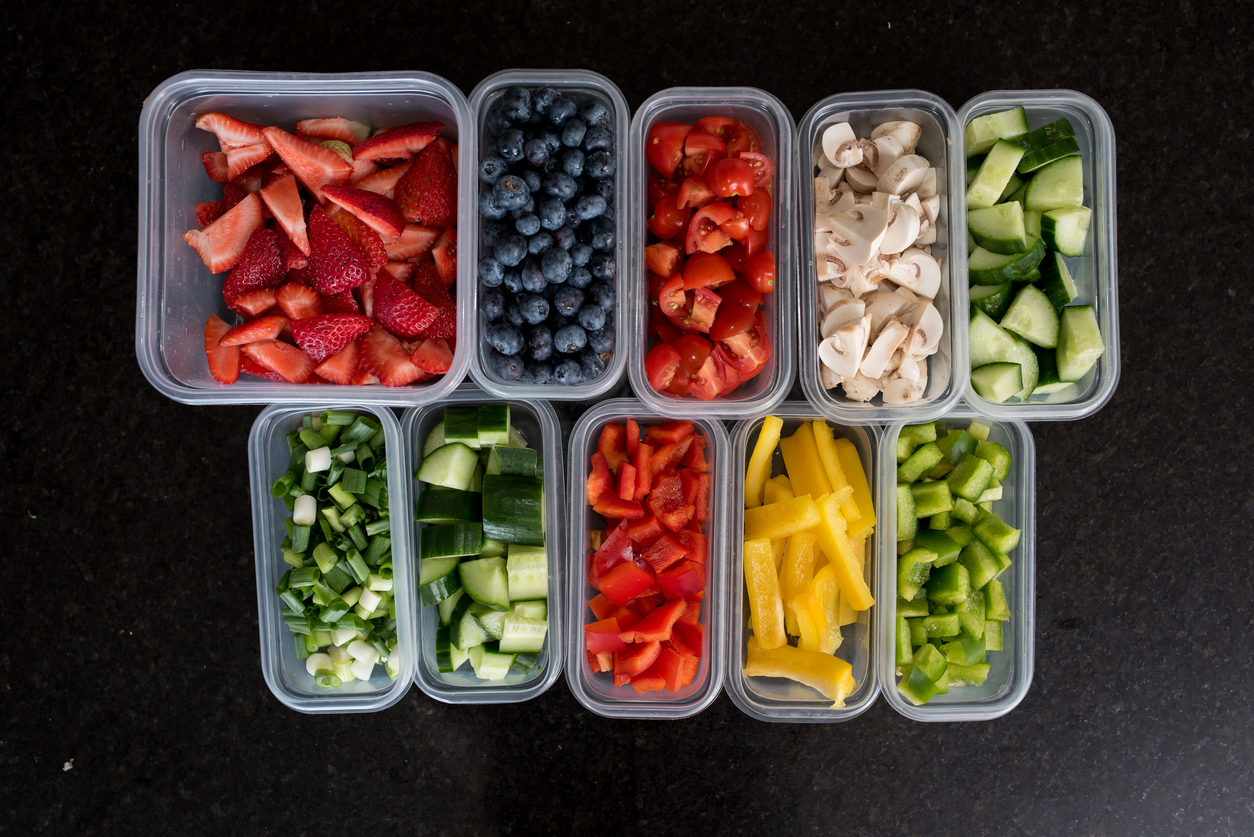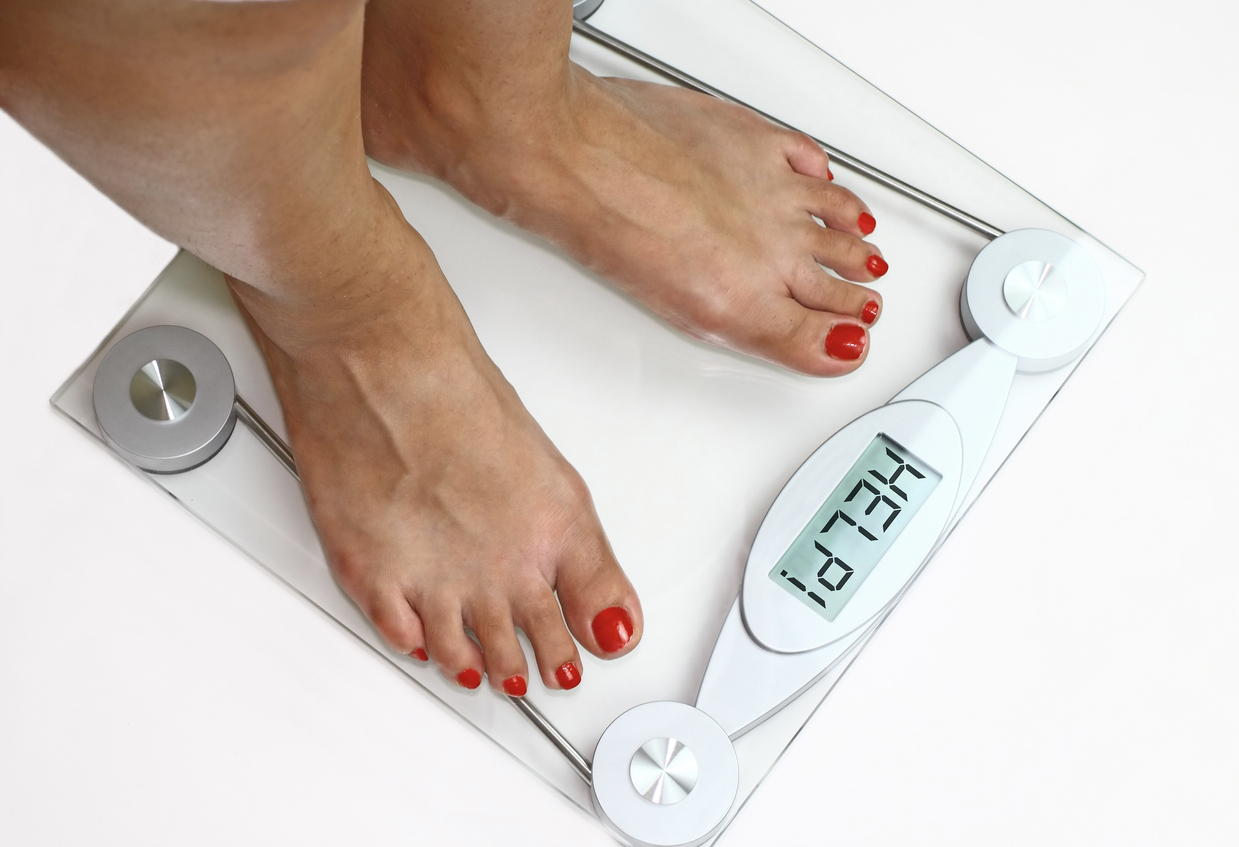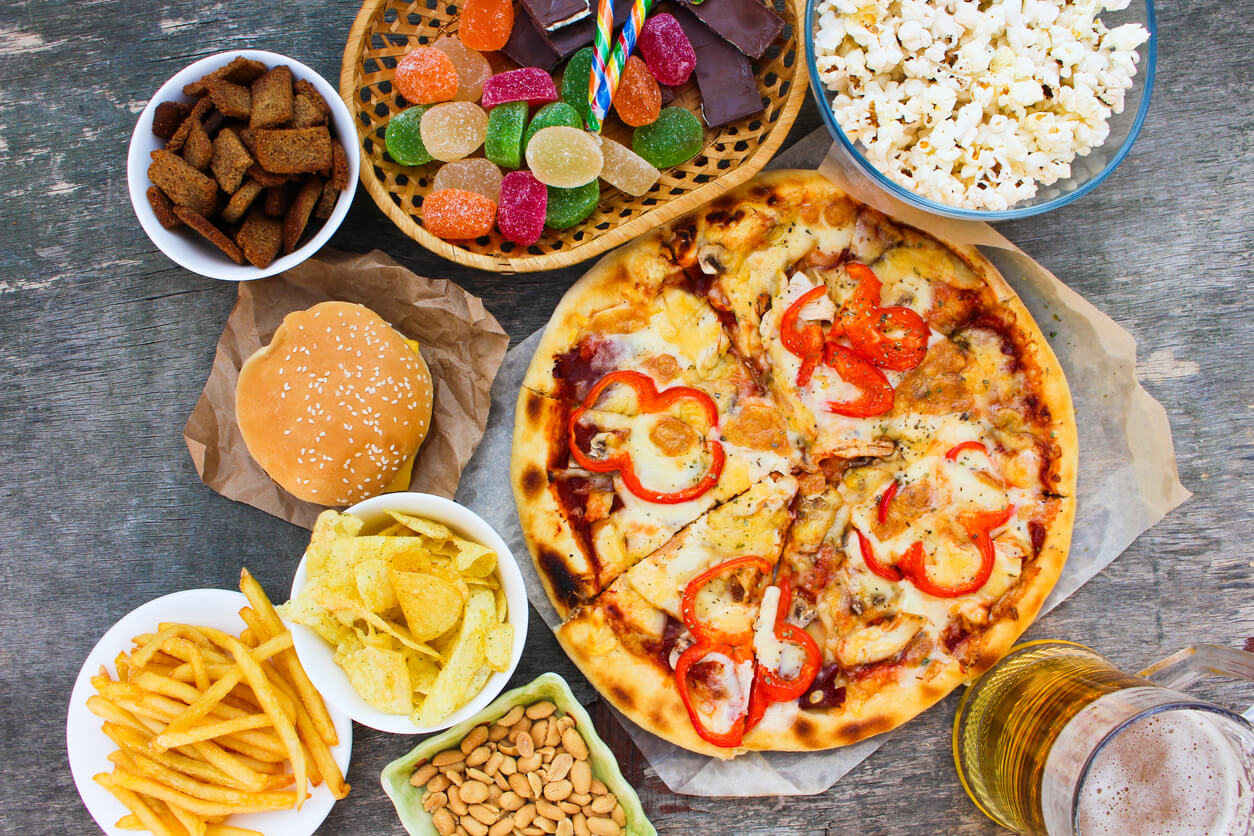Have you ever grabbed a bag of chips, sat down on the couch to watch a tv show, and before the final credits, you have eaten almost the entire bag? Or ordered a pizza planning to eat a slice or two, but it was so delicious that you wound up eating half the pie?
If the answer is yes, you are not alone. Most people have first-hand experience with binge eating. For some, binge eating is a part of a more significant issue (such as bulimia or binge eating disorder) and may require the treatment of a health care professional.
For others, occasional binge eating will happen from time to time. When it does, here are some steps you can take to feel better and get back on track.
1. Don’t Beat Yourself Up
Liz Josefsberg, health and weight-loss expert and author of the book Target 100, says, “The term ‘binge eating’ can be emotionally loaded. Sometimes you overindulge, and that doesn’t make you a bad person. We need to get rid of the shame that so many people attach to overeating.” The feeling of guilt or shame can be counterproductive because those feelings can cause you to actually eat more, thus continuing the cycle. Overeat – guilt – repeat. Let it go to avoid worsening the initial problem. You’ll feel better emotionally and physically if you do.
2. Embrace the New Day
Berating yourself for overeating only exasperates the problem. “Let it go. There is nothing you can do about what you ate yesterday, so stop feeling guilty and focus on the present day,” says Josefsberg.

Instead of punishing yourself for overeating, look forward and think about the wonderful day you have ahead. Josefsberg says, “Get excited about the healthy, delicious foods you will eat today.” What’s really wonderful about this is it sets you up for better habits. As you embrace healthier foods, they’ll become your go-to regardless of your mood. Rewire your brain to crave foods that are good for you, and you’ll live a better life both mentally and physically.
3. Don’t Compensate with a Restrictive Diet
The worst thing to do after binge eating is following it up with caloric restriction. Josefsberg explains. “If you plan to eat 500 calories the next day to punish yourself for a binge, you just set yourself up for another binge. By 4 pm, you will be hungry and irritable, and the cycle of unhealthy eating will continue.” Instead, refocus and proceed as if the binge never happened. Get back on track with your normal eating routine and move forward with your day.
4. Do Make An Eating Plan
To avoid sabotaging yourself, load up your house with healthy food options. Cut up raw vegetables, slice fresh fruit and prepare some lean proteins such as hard-boiled eggs, so they are readily available with you get hungry.
If the foods that you overindulged in are still in your house, toss them. “It is much easier to resist tempting foods if they aren’t available,” says Josefsberg.

5. Do or Don’t Get On the Scale
If getting on the scale will motivate you to make healthy choices, do it. But if it’s going to be emotionally disruptive, avoid the scale for a few days.
For those who choose to weigh themselves, proceed with caution. “The number on the scale is constantly fluctuating, explains Josefsberg. “It may say you gained 5 pounds from a day of overeating, but that is not possible – it’s inflammation and water retention, not real weight gain.”

6. Do Eat Clean Foods
Instead of worrying about calorie intake, concentrate on making nutritionally sound choices. Stay away from sugar, salt, and preservatives. Instead, eat lean proteins, healthy fats, fruits, and vegetables. Josefsberg explains, “Lean protein combined with healthy fats will keep you feeling full. Think eggs and sliced avocado for breakfast, a salad with lean turkey for lunch, dressed with healthy fat (not a bottled salad dressing which may have hidden sugar), and grilled chicken for dinner.”

7. Do Expect Cravings
Josefsberg says, “Usually, when we binge eat, we consume foods high in sugar or salt. That sugar gets into our bloodstream and our body will crave more of it the next day. By anticipating the cravings, we can get ahead of these genuine feelings, and if we eat a food plan that is low in sugar, the cravings will eventually dissipate.” Again, keep unhealthy foods out of your house, so you don’t naturally reach for them when a craving strikes. Try to train your brain to reach for something healthier instead of foods packed with processed sugar or carbs.
8. Don’t Exercise Excessively, But Do Keep Moving
“It isn’t possible or healthy to try sweating off the calories we consumed when we overate,” says Josefsberg, “But a normal amount of exercise can help you to sweat out the sugar in your bloodstream and reduce cravings.” For example, if overindulging has made you feel lethargic, go for a long walk. The fresh air and movement will help – and it will keep you away from the fridge and pantry.

9. Do Hydrate
Flush the body with water to help rid the bloodstream of excess sugar and to decrease hunger feelings. Not getting enough water can lead to other health conditions, like dizziness, fatigue, or even seizures. The amount of water you need each day varies for each of us and is affected by how active you are and the environment you’re in. If you aren’t sure how much water you need each day, check with your doctor. They can give you the best guidance to keep you on track.

10. Do Figure Out The Reason Behind the Binge
There are many reasons people overindulge. Sometimes we binge because of emotions (stress, boredom), sometimes it’s historical (always overeat at Thanksgiving with the family), and sometimes it’s environmental (you could not resist your favorite cheesecake when your friend brought it over).
Learning why you overeat can be a good tool for making positive changes. Josefsberg explains, “The idea isn’t to berate yourself but to learn what caused you to overeat so you can help yourself in the future.” For example, maybe next time your friend brings cheesecake, you enjoy a slice and then ask your friend to take the rest of the cake home with them to avoid the temptation of having it in the house.
Want to give intermittent fasting a try? Take a look at Prime Women’s PLATE program. Now available in an app on Apple or Android with reminders to keep you on track.
Read Next:







